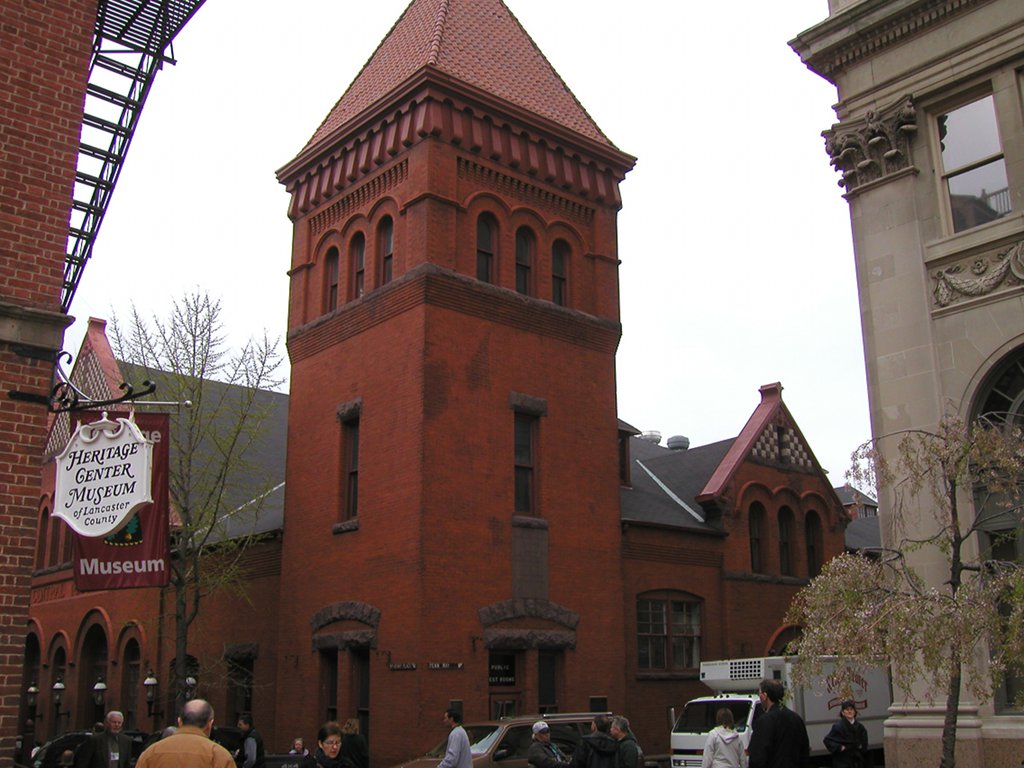Staff Writer
[divider]
The College played host to approximately 200 people from a variety of organizations at the “It Takes a Community” conference Friday. The goal of the conference, which was held at the end of Human Rights Awareness Week, was to increase the level of communication between the various charitable groups in the Lancaster community that help refugees settle in the United States. The conference was jointly organized by Church World Services and the College, and was made possible through a grant from the Lancaster Community Foundation.
According to the conference’s website, http://ittakesacommunitylancaster.com/, “the conference was designed to make it easier for everyone to understand and navigate cultural differences, and in meeting together we can devise new practical ideas which can then be implemented to make our work easier and more successful in serving refugees. We hope that together we can continue to make Lancaster a welcoming community for refugees, and collaborate to make it a model of a community where refugees are well-integrated.”
“Ultimately, the goal is to help the community,” said Anna Pick ’15. “Each core leader involved with the conference has a love for humankind, a love for the community and for making a difference.”
“There are a lot of really great people doing really great things in Lancaster, but it’s just not coordinated,” added Susan Dicklitch, director of the Ware Institute and associate dean of the College.
This lack of coordination became evident as participants in the conference talked with each other throughout the day. Many realized that, although they work for separate organizations, they have been aiding the same refugee families who have gone to multiple groups for help.
The conference focused on four different tracks, each of which relates to a specific aspect of helping refugees in the acclimation process. The tracks were: building a strong community, education, mental health, and healthcare.
The day began with opening remarks from Dan Porterfield, president of the College, Norm-Anne Rothermel, state refugee coordinator, Sheila McGeehan, director of Church World Service in Lancaster, and Dicklitch. Participants then divided into four groups according to the track that interested them the most. Each track had a workshop entitled “Inspiring Communities,” which was followed by a question-and-answer period during which they could pose questions to a panel of refugees. Later in the day, there were two cultural workshops: one led by Sarah Besky, visiting scholar and expert on Nepal, who discussed Bhutanese and Nepali refugees, and another led by Myra Dahgaypaw, campaigns coordinator for the US campaign for Burma, who talked about Burmese refugees.
Next, each track attended a needs-assessment forum. Here, participants broke into small groups and discussed the strengths, weaknesses, opportunities, challenges in Lancaster‚ and various programs to help refugees. The four tracks then reconvened for a presentation that summarized each track’s discussion in the needs-assessment forum, which was given by student volunteers from The Human Rights Initiative (THRI), who were helping during the day. All tracks agreed limited funding is a significant challenge to assisting the refugees. Additionally, they noted language and cultural barriers make it difficult to help.
The groups all aspired to build a cultural center for the refugees so there could be a centralized location for them to receive aid. They would also like to create a social networking process through which refugees could communicate with each other and with volunteer organizations that would help standardize the process of getting settled in the U.S.
“The next step is not to forget what we have done here today,” Dicklitch said. “We want to create a coalition of organizations to work together that has a strong core. Franklin & Marshall, as an institution of higher education, must be part of that. Having refugees come in isn’t going to end soon, so we must make sure we can provide for them.”
Dicklitch also would have liked to see a refugee coordinator come to Lancaster to oversee the existing programs for helping the refugees and to foster greater communication between the various organizations. She, like many other people at the conference, would also like to build a cultural center in Lancaster for the area’s refugees.
“A cultural center would be a physical presence for all refugees so they could take ESL (English as a Second Language) classes, to get their taxes done like the Ware Institute does through VITA, to celebrate and worship, to learn about entrepreneurial opportunities, to get career skills, and even to get college counseling skills,” she said. “And all these things could be done at one location.”
Everyone who helped organize and run the conference seemed to deem it a success.
“I think everyone has collaborated their ideas and will keep in touch,” said Anna Folz ’15, who helped plan the event. “This is not just a one-day event, but will hopefully turn into a lifetime of accomplishments.”
“Today was about communication, collaboration, and community,” McGeehan said in her closing remarks. “We have come up with some ideas and ways to make the ideas come to fruition. We don’t want the conversation to stop here; we want to start projects together with people we have met here today.”
“We want to be the model of refugee resettlement in the United States,” she added, “And we are already halfway there.”
[divider]
catherine.brown@fandm.edu.
